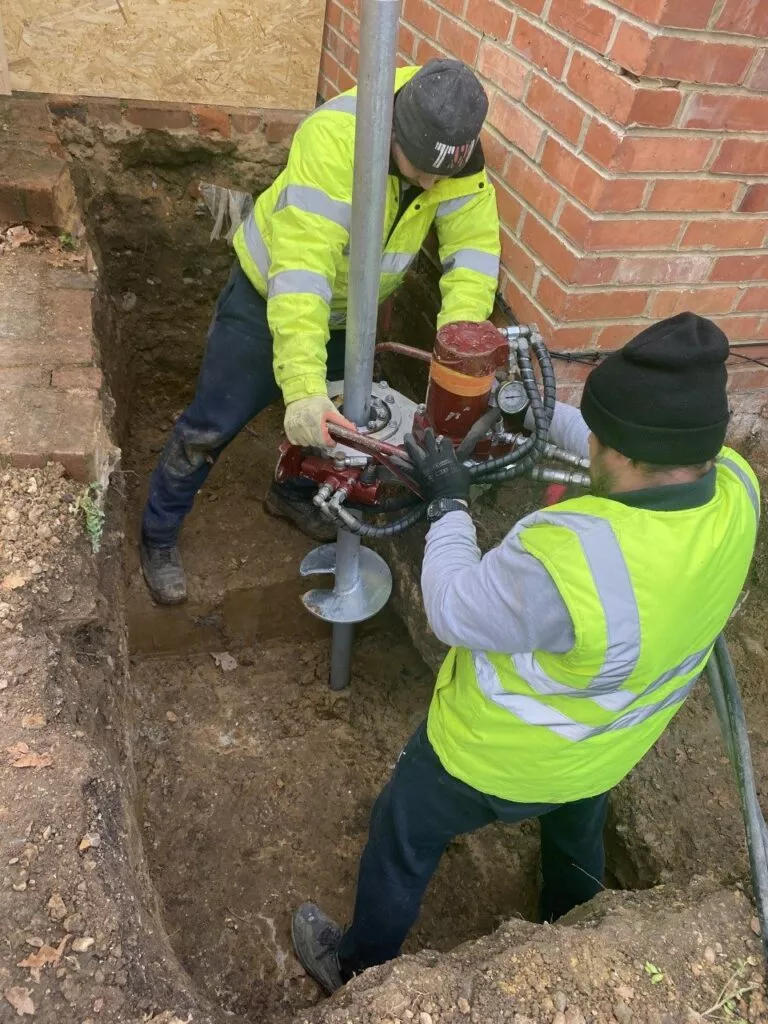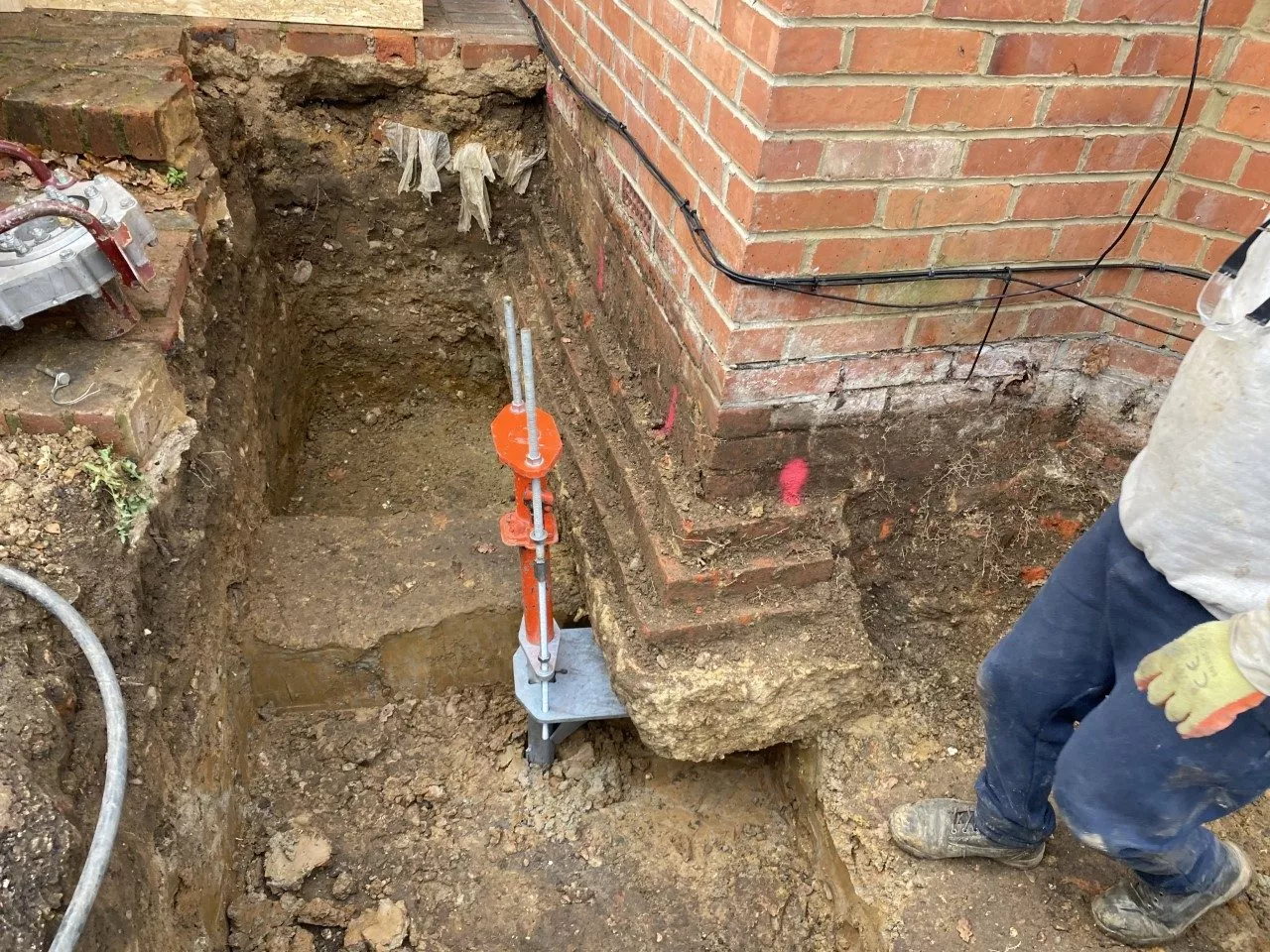Screw Piling
What Is Screw Piling?
Screw Piling is a construction method used to build deep foundations through the use of ground anchoring which is done by steel screw-in piling.
They are circular and hollow steel screw tubes which hold one or more helices on their outer surface.
As opposed to auguring through the soil it is being penetrated into, screw piles cut into it following a constant pitch.
The helices the screw piles hold are designed specifically to suit the desired ground conditions.
These can be utilised on a wide range of different soil types.
They are able to remain permanently fixed in place once it has reached the desired ground depth.
It is then typically filled with concrete.
The protruding screw pile is able to provide a connection between the building above and the ground it is cemented into.
In many cases increases the capacity of the pile.
Screw piles hold a mechanism of dispersing load which gives them an outstanding in-ground performance.

How Is Screw Piling Conducted?
The piles are wound into the ground similar to how screws are wound into wood which is an efficient means of installations.
They are installed via the use of a range of different earthmoving equipment which are typically fitted with rotary hydraulic attachments.
One of the benefits is that the piles can be installed quickly and with minimal noise and vibrations.
Importantly, subject to building regulations and requires approval from local building control inspectors.
Here at Structural Repairs, we are able to confidently handle the liaison with building inspectors and arrange the required inspections as part of the service we offer.
Please feel free to get in touch with one of our industry leading experts to attain a free quotation and consultation today!
Are Screw Piles Effective?
Within the construction world, screw piles are known for their impressive in-ground performance which results from their specific mechanism of dispersing load.
The helices screw piles hold and the means with which they are filled with concrete once they have reached their desired ground depth makes them further effective at conducting their desired performance.
In fact, the unique features makes them inherently more reliable than traditional concrete foundation construction methods.
With the right piles, installed via professional and accurate means, this is an extremely effective remedial method with the potential to avert any unwanted foundational movement in the long run.
How Deep Do Screw Piles Have To Go?
In theory, the depth at which they can be inserted in the ground is unlimited.
However, practically and in terms of economic factors, the piles are best kept at a total length of less than 14 meters sub ground.
Given their unique design and use of helices, screw piles require less length to achieve the same capacity as other forms of piling such and concrete piles.
This is because they rely on end bearing on the helix plates only, meaning skin friction is negligible.
Additionally, the piles hold helix plates which perform in the same way as a multiple set of end bearing piles, all while on a common shaft.

How Much Does Screw Piling Cost
Depending on the level of service you’re looking for, screw piling comes in many different forms and with varying different price tags. Each method can be used on a range of different structures and using a range of different materials. In addition, the extent of the screw piling necessary will be dependent on the current state of you foundation and the materials it has been constructed from.
In all, however, the costs are likely to start from approximately £575 per pile. For a more accurate cost estimation, however, please feel free to get in touch with one of our experts today.
How Long Do Screw Piles Last?
Screw piles typically last around 75 years, although their lifespan depends on the type of pile and soil conditions.
In fact, they often become stronger over time due to thixotropy, which means they become less viscous when subjected to stress.
This means that the pile’s capacity increases after installation, making it an even better investment than you might have thought.
To ensure your property’s foundation is in good condition, we recommend a full survey to identify any issues.
Our experts can then recommend the most effective remedial action and help with any necessary arrangements, such as planning permission.
If you’re concerned about the structural condition of your property, don’t hesitate to contact us for a free consultation with one of our specialists.
What Machinery Is Used To Implement Screw Piles?
Structural Repairs are a leading global specialist